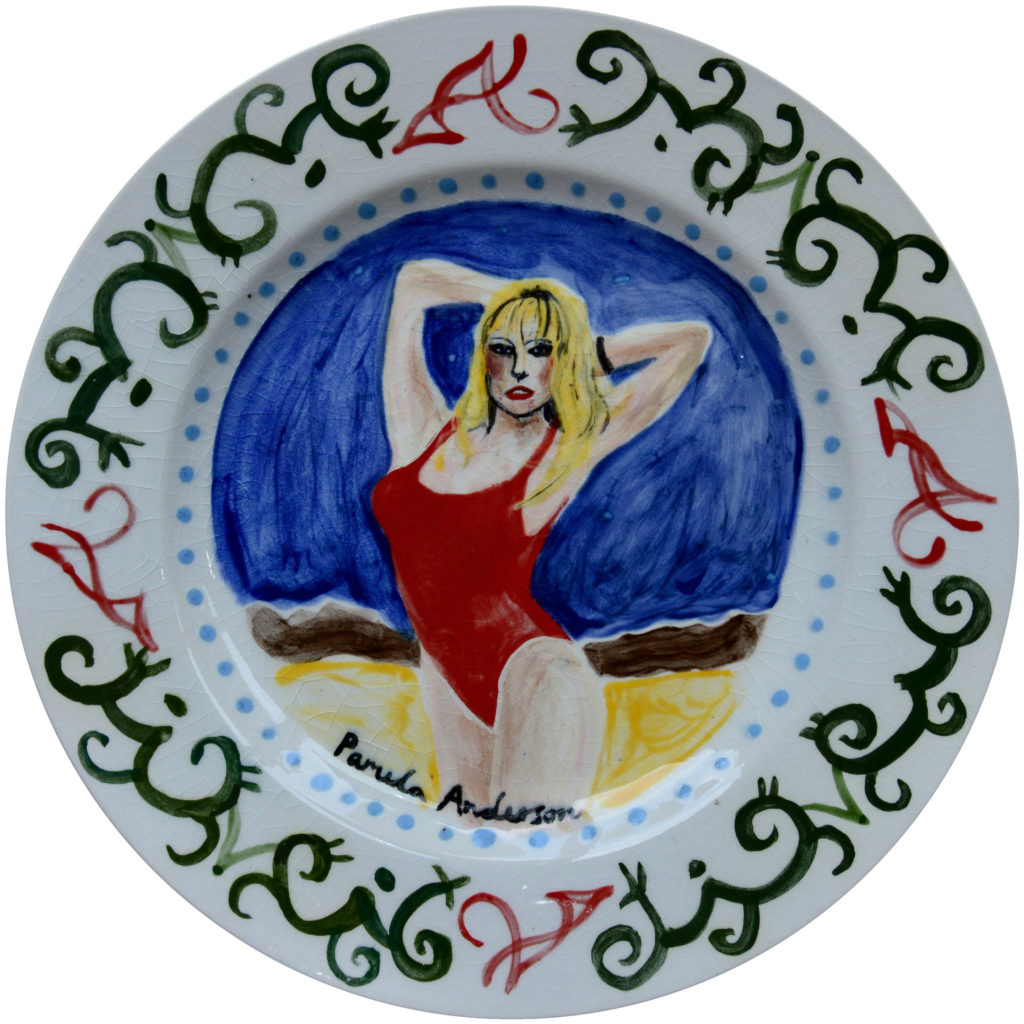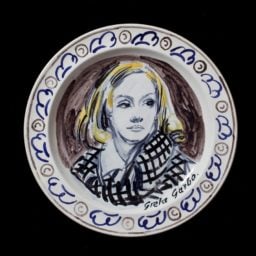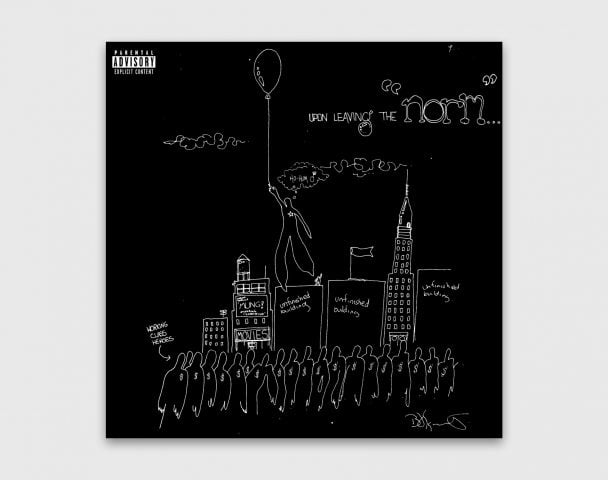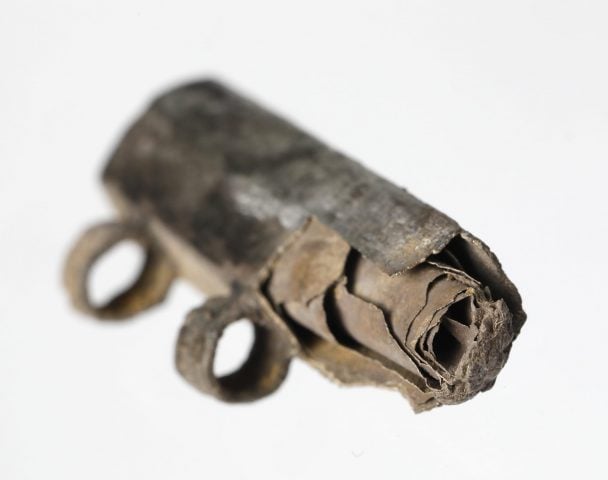The British artist Benedict Hughes has made a series of painted plates that celebrate vegetarians and vegans down the ages. The work was inspired by Vanessa Bell and Duncan Grant’s The Famous Women Dinner Service, which the Bloomsbury artists created for the Wedgwood china company in the early 1930s. After Hughes’s show closes this weekend at the Brocket Gallery in London, the dinner service will head to a vegetarian restaurant on London’s Southbank.
Hughes’s new vegetarian version of the dinner service features a diverse range of non-meat eaters, including the artists Leonardo da Vinci, William Blake, and Constantin Brancusi, the writers Franz Kafka and Mary Shelley, and the philosophers Nietzsche, Confucius, and Plato. Contemporary vegetarians celebrated in porcelain include Prince, Kate Bush, Vivienne Westwood, Linda and Paul McCartney, Pamela Anderson, and Brigitte Bardot.
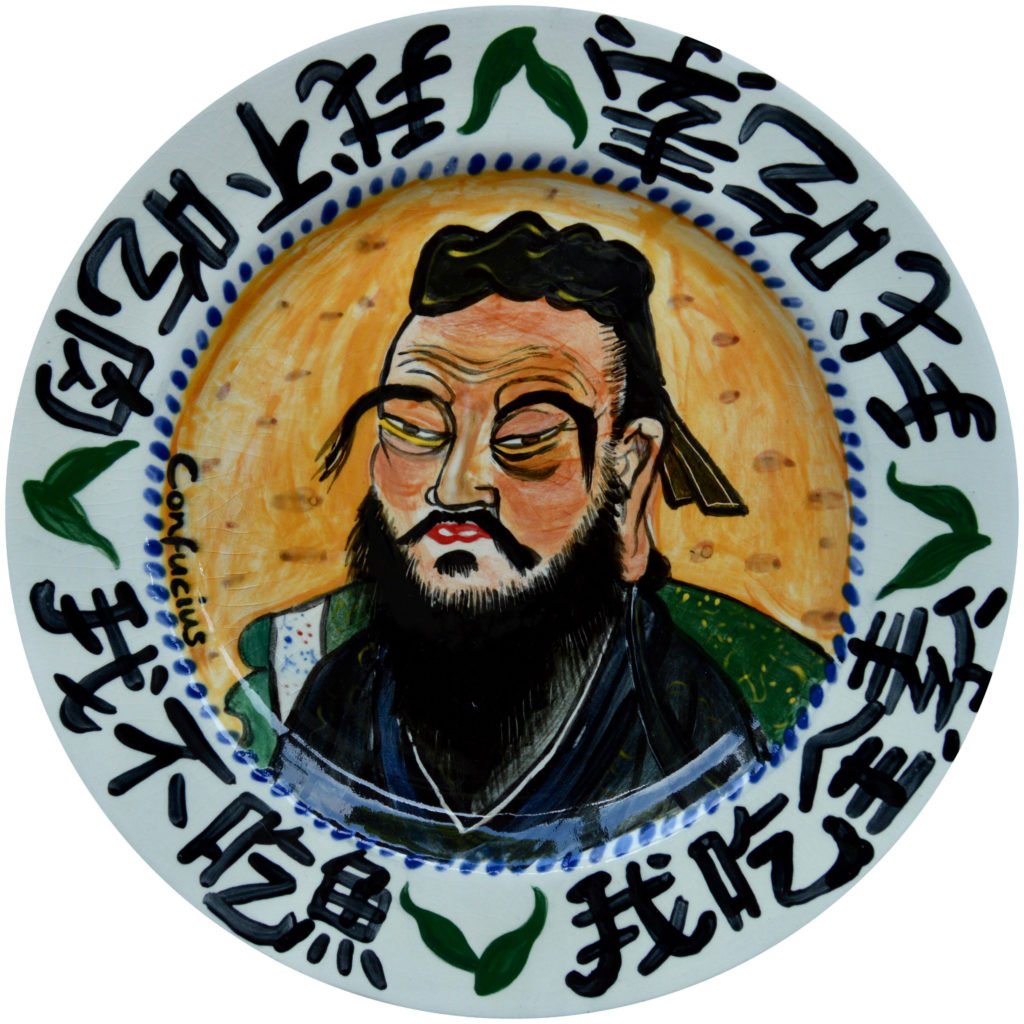
Benedict Hughes, Confucius (2018). ©Benedict Hughes, courtesy of Brocket Gallery.
“I tried to include people I like,” Hughes tells artnet News, which explains why Rosa Parks is featured by Mike Tyson isn’t. Adolf Hitler is also missing. (His diet was more about Nazi propaganda, the artist says, rather than love of animals or respect for their rights. “Vegetarians don’t like to credit him with being a vegetarian,” Hughes says.)
The artist created the work partly because he believes more people should become vegetarian for environmental reasons. That explains the artist’s life-sized sculpture of a rhinoceros in steel, which is the focal point of the show and gives it its title: “Is There a Rhinoceros in the Room?”
“I was reading about the West African black rhino becoming extinct,” he says. “Elephants are more celebrated, but I thought rhinos need a nod.”
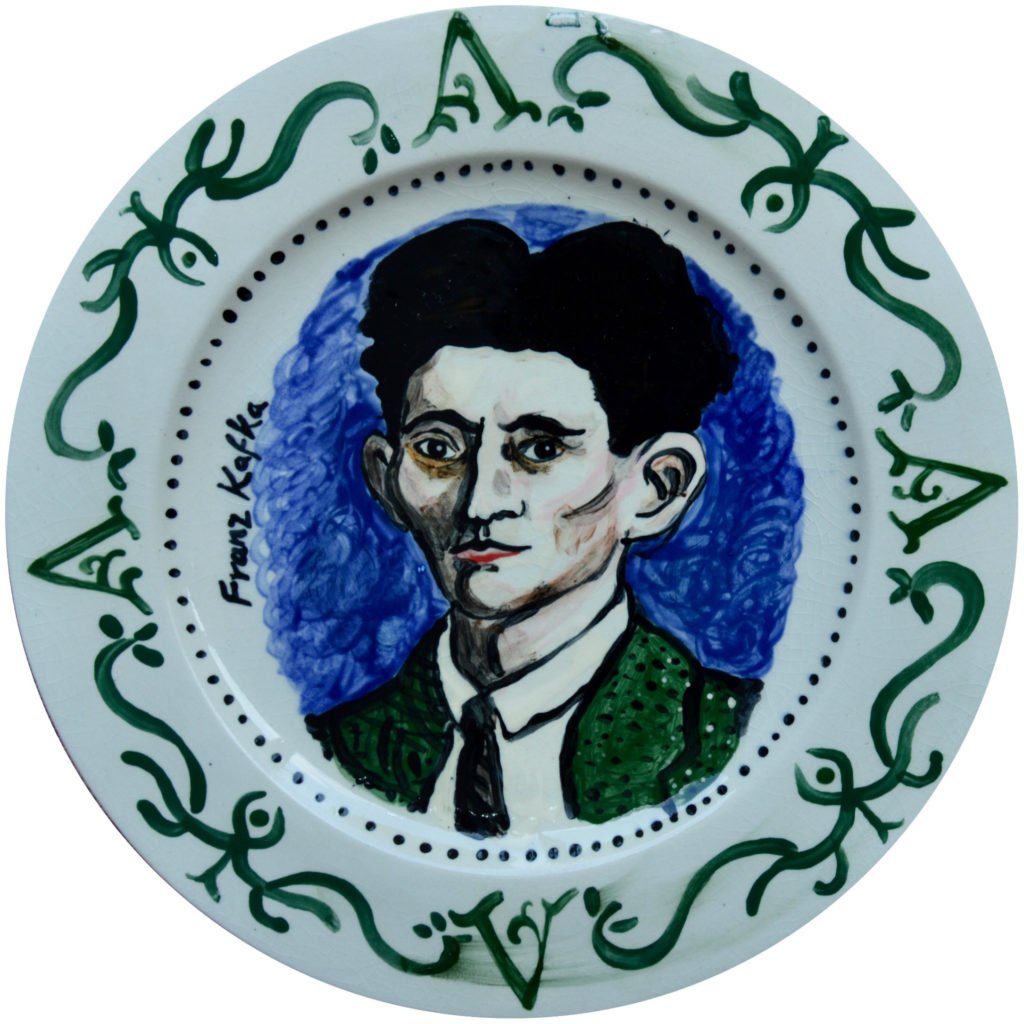
Benedict Hughes, Franz Kafka (2018). ©Benedict Hughes, courtesy of Brocket Gallery.
Hughes saw Bell and Grant’s dinner service at a recent show at London’s Piano Nobile gallery. He says that the ceramics that form Judy Chicago’s famous feminist Dinner Party are a bit too “garish,” preferring the Omega Workshop aesthetic, which was inspired by the artist’s love of French Modern art. “I thought, ‘What is relevant now?’ Being a vegetarian or vegan is increasingly part of the culture,” he says.
Hughes originally planned to make 100 plates, but ran out of time. (Each plate is a unique work.) “I am hoping to do another 50,” he says, in part to include vegetarians he discovered too late, such as Antony Gormley. In the exhibition, William Shakespeare is seated at the dinner party alongside actor Anne Hathaway’s. Each is priced at £250 ($328). (Brancusi, Plato, and Confucius have already sold.)
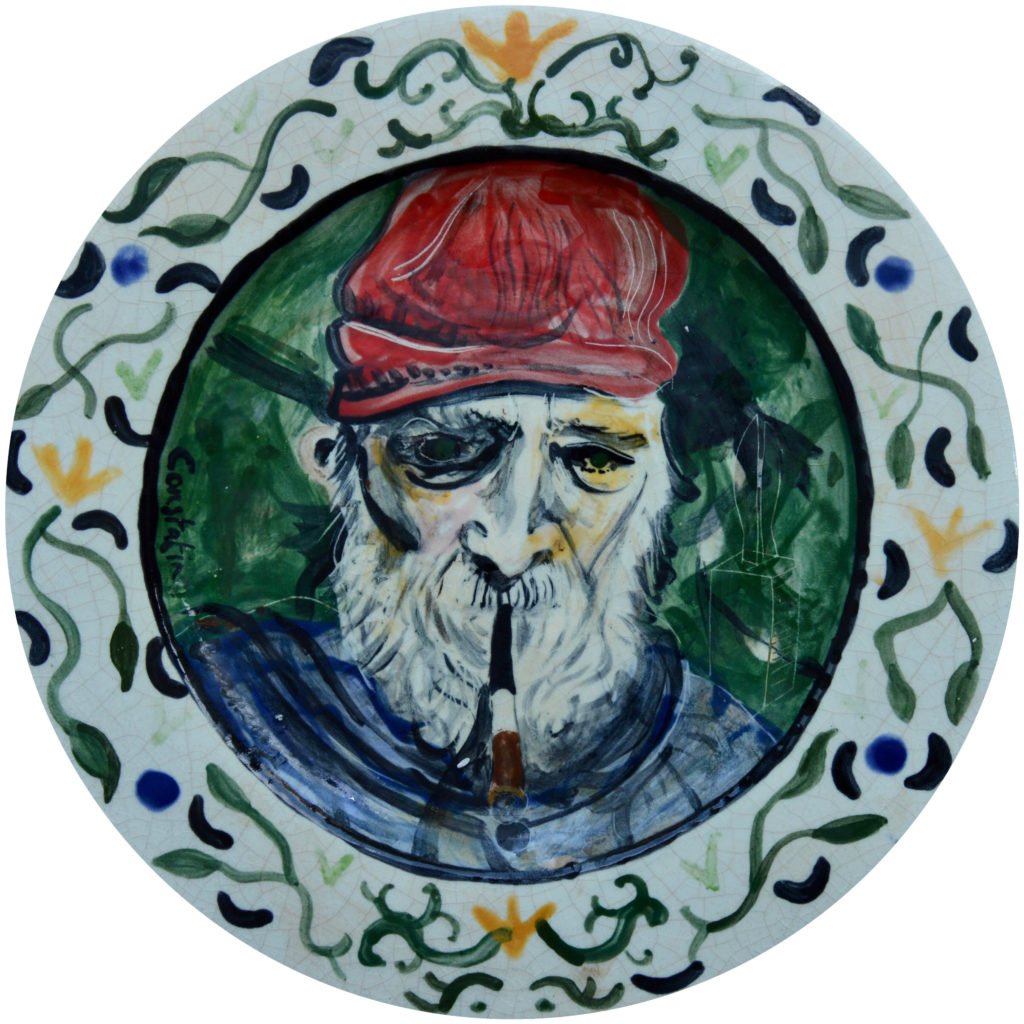
Benedict Hughes, Constantin Brancusi (2018). ©Benedict Hughes, courtesy of Brocket Gallery.
A selection of the plates will head next to a new branch of the chic vegetarian restaurant Tibits. “Some people who turned up to the exhibition got quite upset,” Hughes says. “It will be nice to show the work to people who are responsive, instead of shoving it down their throat.”
“Benedict Hughes: Is There a Rhinoceros in the Room?” June 6 through August 4, Brocket Gallery, Kennington, London.
